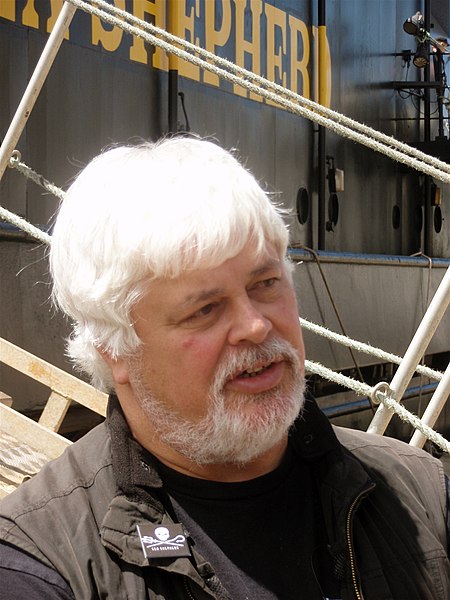
Denmark announced Thursday that it has received Japan's extradition request for anti-whaling activist Paul Watson, who was arrested in Greenland last month on an international arrest
warrant. Watson, the 73-year-old founder of Sea Shepherd, faces charges related to a 2010 confrontation with Japanese whaling ships, raising concerns over his potential extradition and the motivations behind Japan's request.
Denmark's justice ministry confirmed on Thursday that it had received Japan's formal extradition request for Paul Watson, who was detained in Greenland, an autonomous Danish territory, over a 2010 altercation with Japanese whaling ships.
Watson, an American-Canadian activist and founder of Sea Shepherd and the Captain Paul Watson Foundation (CPWF), was arrested on July 21 in Greenland. Known for his direct action tactics, Watson has been featured in the reality TV series "Whale Wars."
"The Ministry of Justice received a formal extradition request regarding Paul Watson from the Japanese authorities yesterday," the ministry told AFP in an email. The ministry stated that it would forward the case to Greenland police unless it finds grounds to reject the extradition request beforehand.
If forwarded, Greenland police will investigate "whether there is basis for extradition," including compliance with the extradition act applicable to Greenland. However, Denmark's justice ministry will make the ultimate decision on Watson's extradition.
A custody hearing is scheduled in Greenland for August 15, pending a Danish decision on the extradition request.
Watson was arrested upon arriving in Nuuk, Greenland's capital, when the ship John Paul DeJoria docked to refuel. The vessel was en route to "intercept" a new Japanese whaling factory vessel in the North Pacific, according to the CPWF.
One of Watson's lawyers, Francois Zimeray, expressed no surprise at the extradition request, stating that "Japan has a personal vendetta against Paul Watson, and this so-called offence is the pretext for revenge against a man who defied and therefore humiliated them." Zimeray argued that extraditing Watson to Japan would violate the European Convention on Human Rights, as "the country does not respect international standards on fair trials and prisons."
Watson's arrest is based on an Interpol "Red Notice" issued in 2012 when Japan accused him of causing damage and injury to one of its whaling ships in the Antarctic two years earlier. He faces charges of causing injury, which can carry up to 15 years in prison or a fine of up to 500,000 yen ($3,300), and forcible obstruction of business, which carries a penalty of up to three years in prison or a fine up to 500,000 yen.
Japan is one of only three countries globally that permit commercial whaling, along with Iceland and Norway.
Watson's wife appealed to Denmark's King Frederik X and Queen Mary for his release, highlighting his health concerns, particularly his Type 1 diabetes, which she stated could be lethal in a Japanese prison.
The head of Sea Shepherd France, Lamya Essemlali, reported that Watson remains in good spirits and has no regrets about his actions despite the risk of extradition. French President Emmanuel Macron's office has requested Danish authorities not to extradite Watson, who has resided in France for the past year.
A French online petition urging Macron to demand Watson's liberation has garnered more than 675,000 signatures, while another Sea Shepherd France petition urging Danish Prime Minister Mette Frederiksen not to extradite Watson had almost 27,000 signatures as of Thursday.
Famed environmentalist and primatologist Jane Goodall has also called for Watson's release, praising his efforts to prevent the inhumane practice of killing whales, which most countries banned decades ago.



































